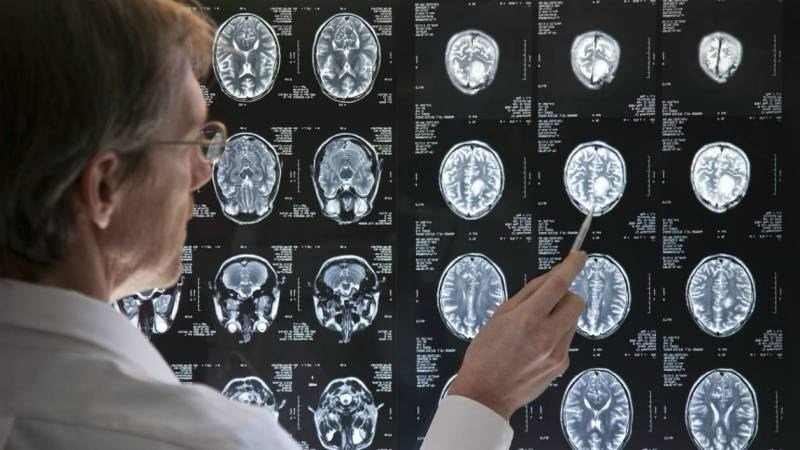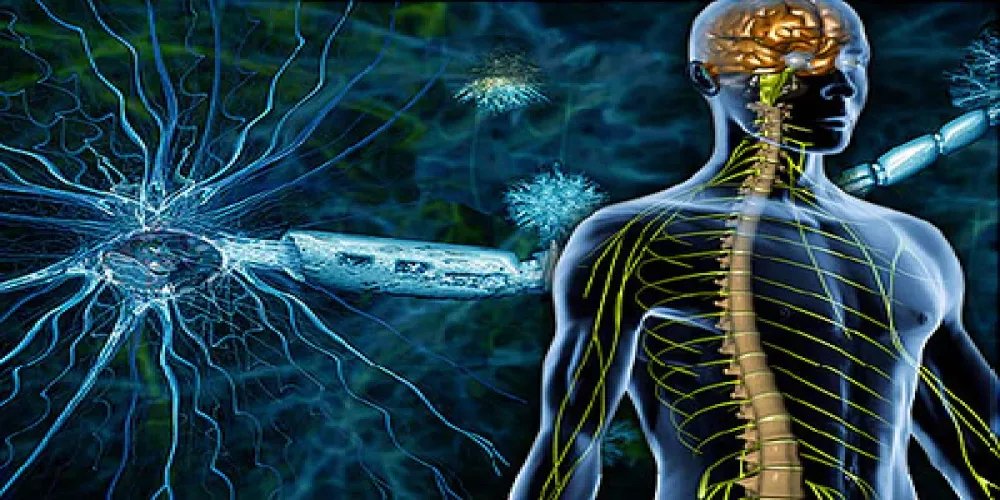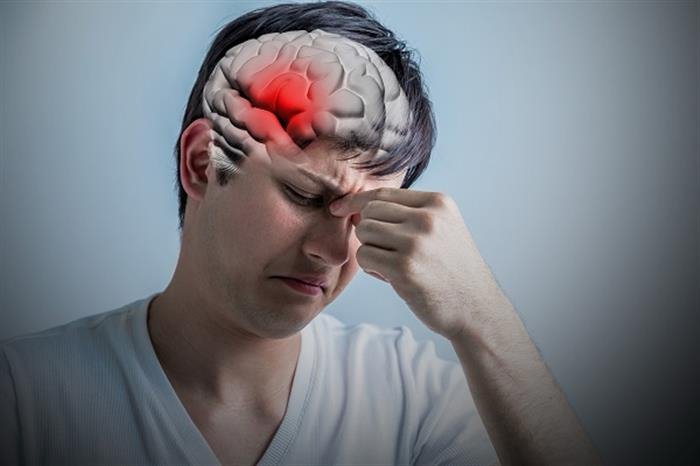Multiple sclerosis (MS) is a chronic, often disabling disease that affects the central nervous system, including the brain and spinal cord. It is a condition in which the immune system mistakenly attacks the protective sheath (myelin) that covers nerve fibers, leading to communication issues between the brain and the rest of the body. Over time, MS can cause permanent damage or deterioration of the nerves, leading to physical and cognitive impairments. While there is no cure for MS, early diagnosis and treatment can significantly improve the quality of life for individuals living with the disease.
In this article, we will explore the causes, symptoms, and treatment options for MS, and discuss ways to manage the condition effectively. Whether you’re living with MS or simply seeking to understand it, this guide provides valuable insights into the disease and its impact on daily life.
What is Multiple Sclerosis?
Multiple sclerosis is classified as an autoimmune disorder, where the body’s immune system targets its own tissues. In MS, the immune system attacks the myelin sheath—a fatty substance that surrounds and insulates the nerve fibers—disrupting the flow of information between the brain and the rest of the body.
MS can vary widely in severity and symptoms from one person to another. Some individuals may experience only mild symptoms and can lead relatively normal lives, while others may suffer from more severe disabilities.
Types of Multiple Sclerosis
MS manifests in different forms, and the progression and severity of the disease can vary:
- Relapsing-Remitting MS (RRMS): This is the most common form of MS, affecting approximately 85% of those diagnosed. Individuals with RRMS experience episodes of new or worsening symptoms (relapses) followed by periods of partial or complete recovery (remissions).
- Primary Progressive MS (PPMS): In this type, symptoms gradually worsen from the onset without significant relapses or remissions. Approximately 10-15% of MS patients have PPMS.
- Secondary Progressive MS (SPMS): This stage often follows RRMS, where the disease becomes steadily progressive with fewer remissions over time.
- Progressive-Relapsing MS (PRMS): A rare form of MS characterized by steadily worsening symptoms from the beginning, with occasional acute relapses but no periods of remission.
Causes of Multiple Sclerosis
The exact cause of MS is not fully understood, but it is believed to result from a combination of genetic and environmental factors. Here are some of the potential contributors:
- Immune System Dysfunction: MS is an autoimmune disease, meaning the body’s immune system attacks its own healthy tissues. In the case of MS, this results in damage to the nervous system.
- Genetic Factors: While MS is not directly inherited, having a family history of MS slightly increases the risk of developing the disease.
- Environmental Factors: Studies have shown that people living in regions farther from the equator, where sunlight exposure and vitamin D levels are lower, have a higher incidence of MS. Other factors, such as smoking, have also been linked to a higher risk of MS.
- Viral Infections: Some researchers believe that infections like the Epstein-Barr virus may trigger MS in genetically predisposed individuals.
Symptoms of Multiple Sclerosis

The symptoms of MS can vary widely depending on the individual and the area of the nervous system that is affected. The most common symptoms include:
- Fatigue: This is one of the most common symptoms of MS and can significantly impact daily life.
- Numbness and Tingling: MS often causes numbness, tingling, or pins-and-needles sensations in various parts of the body, particularly in the limbs and face.
- Muscle Weakness: Muscle weakness, especially in the legs, can affect balance and coordination.
- Vision Problems: Blurred vision, double vision, and even vision loss in one eye are early signs of MS due to inflammation of the optic nerve (optic neuritis).
- Mobility Issues: MS can lead to difficulties with walking and maintaining balance.
- Cognitive Impairments: Some people with MS may experience difficulties with memory, concentration, and problem-solving.
- Bladder and Bowel Dysfunction: MS can disrupt normal bladder and bowel function, leading to issues such as incontinence or constipation.
- Pain and Muscle Spasms: MS can cause painful muscle spasms, particularly in the legs.
- Depression and Mood Changes: Many individuals with MS experience mood swings, anxiety, or depression.
Diagnosing Multiple Sclerosis
Diagnosing MS can be challenging, as its symptoms can mimic other neurological conditions. However, a combination of tests and examinations can help identify MS, including:
- Magnetic Resonance Imaging (MRI): This imaging technique helps detect lesions or damage in the brain and spinal cord associated with MS.
- Lumbar Puncture (Spinal Tap): A sample of cerebrospinal fluid can be analyzed for abnormalities linked to MS.
- Evoked Potentials Test: This test measures the electrical activity in the brain in response to stimuli and can detect slow nerve responses often seen in MS.
- Blood Tests: While no blood test can diagnose MS, they are used to rule out other conditions that may cause similar symptoms.
Treatment Options for Multiple Sclerosis
Although there is no cure for MS, various treatments can help manage symptoms, slow the progression of the disease, and improve quality of life. Treatment options include:
1. Disease-Modifying Therapies (DMTs)
DMTs are medications designed to slow the progression of MS and reduce the frequency and severity of relapses. Some commonly prescribed DMTs include:
- Interferon beta: This medication helps reduce inflammation and the frequency of MS relapses.
- Glatiramer acetate (Copaxone): This injectable drug is designed to prevent the immune system from attacking the myelin sheath.
- Fingolimod (Gilenya): Taken orally, this medication helps reduce the frequency of relapses by trapping immune cells in the lymph nodes.
- Ocrelizumab (Ocrevus): This drug is approved for both RRMS and PPMS and works by targeting a specific immune cell thought to be involved in the attack on the nervous system.
2. Corticosteroids
Corticosteroids, such as methylprednisolone, are used to reduce inflammation during acute MS flare-ups. While they can help speed recovery during relapses, they are not intended for long-term use.
3. Physical Therapy
Physical therapy plays a crucial role in managing the physical symptoms of MS. It helps improve strength, mobility, and balance, reducing the impact of muscle weakness and fatigue.
4. Symptom Management
MS can cause a wide range of symptoms, and treating these symptoms individually can improve quality of life. For example:
- Medications for pain and muscle spasms: Drugs like gabapentin and baclofen can help relieve nerve pain and muscle stiffness.
- Bladder and bowel control medications: Various medications can help manage bladder and bowel dysfunction.
Lifestyle Changes for Managing MS
Living with MS requires making lifestyle adjustments to manage symptoms effectively and maintain overall well-being. Here are some tips for managing MS:
- Stay Active: Regular physical exercise can help improve muscle strength, balance, and overall energy levels. Low-impact exercises, such as swimming, yoga, and walking, are particularly beneficial for people with MS.
- Manage Stress: Stress can trigger or worsen MS symptoms, so it’s important to incorporate relaxation techniques, such as meditation, deep breathing exercises, and mindfulness, into your routine.
- Eat a Balanced Diet: A healthy diet rich in fruits, vegetables, whole grains, and lean proteins can help support overall health. Some studies suggest that diets low in saturated fat and high in omega-3 fatty acids may be beneficial for people with MS.
- Prioritize Rest: Fatigue is a common symptom of MS, so it’s essential to get enough rest and listen to your body’s needs.
Advances in MS Research
The landscape of MS treatment is rapidly evolving. Researchers are continuously exploring new therapies and approaches, including stem cell therapy, to halt disease progression and potentially reverse nerve damage. Participation in clinical trials can provide individuals with access to experimental treatments while contributing to the broader understanding of MS.
Conclusion
Multiple sclerosis is a complex and unpredictable disease that affects each person differently. While there is no cure for MS, early diagnosis and a comprehensive treatment plan can help manage symptoms, slow the progression of the disease, and improve quality of life. Understanding the symptoms, causes, and available treatment options can empower individuals living with MS to take control of their health and live life to the fullest.
If you or someone you know is experiencing symptoms of MS, it’s important to seek medical advice for an accurate diagnosis and to explore the best treatment options available.
Sources:
- National Multiple Sclerosis Society, “What is MS?” National MS Society.
- Mayo Clinic, “Multiple Sclerosis,” Mayo Clinic.
- Multiple Sclerosis International Federation, “MS Research,” MSIF.




